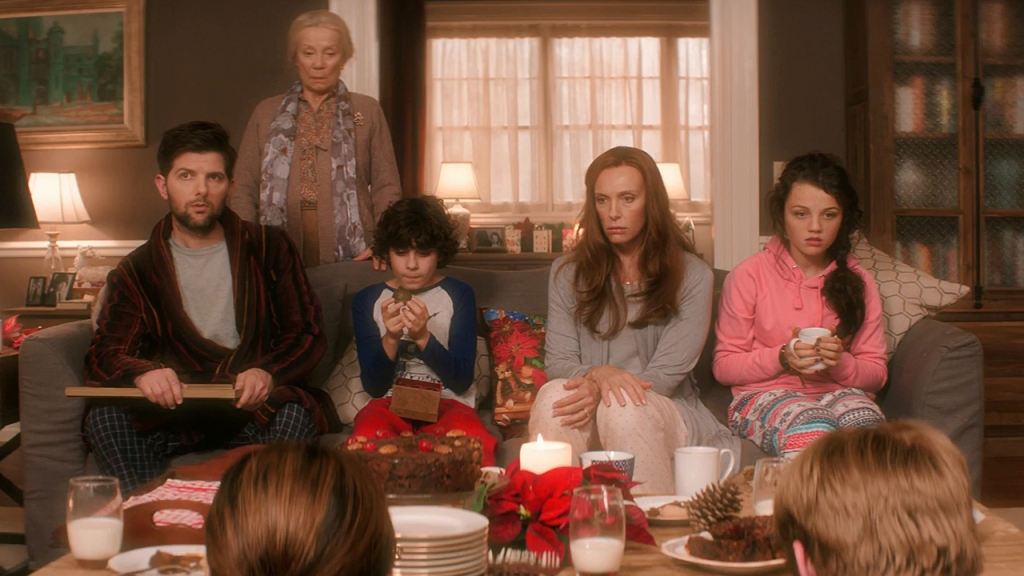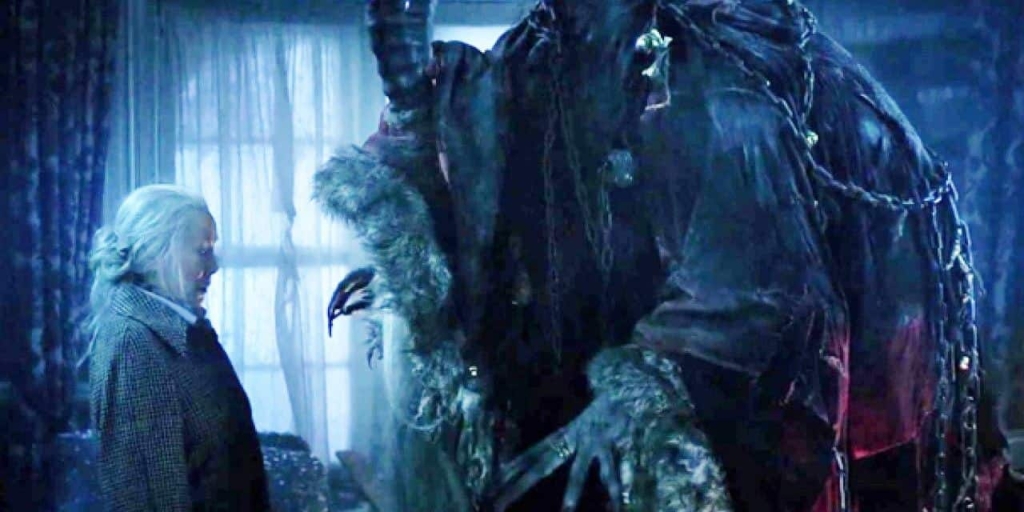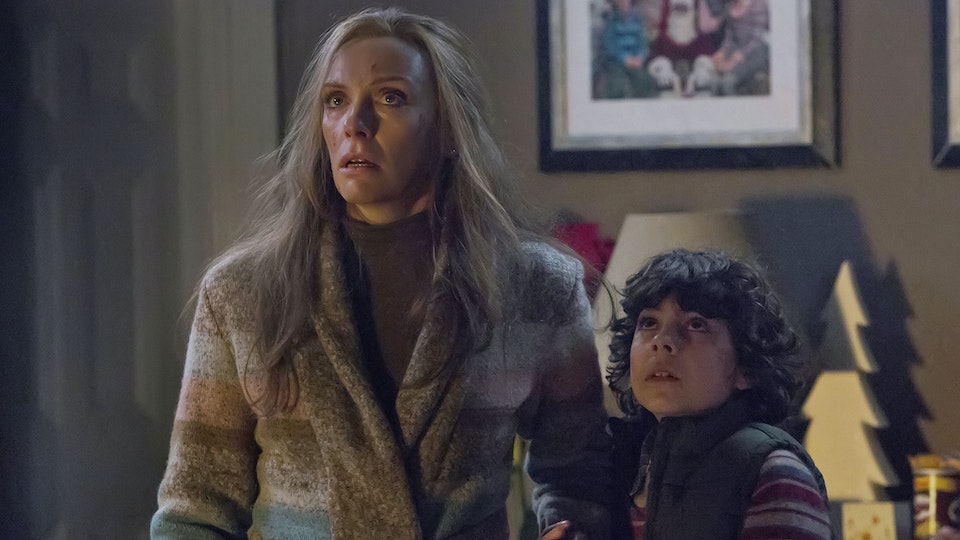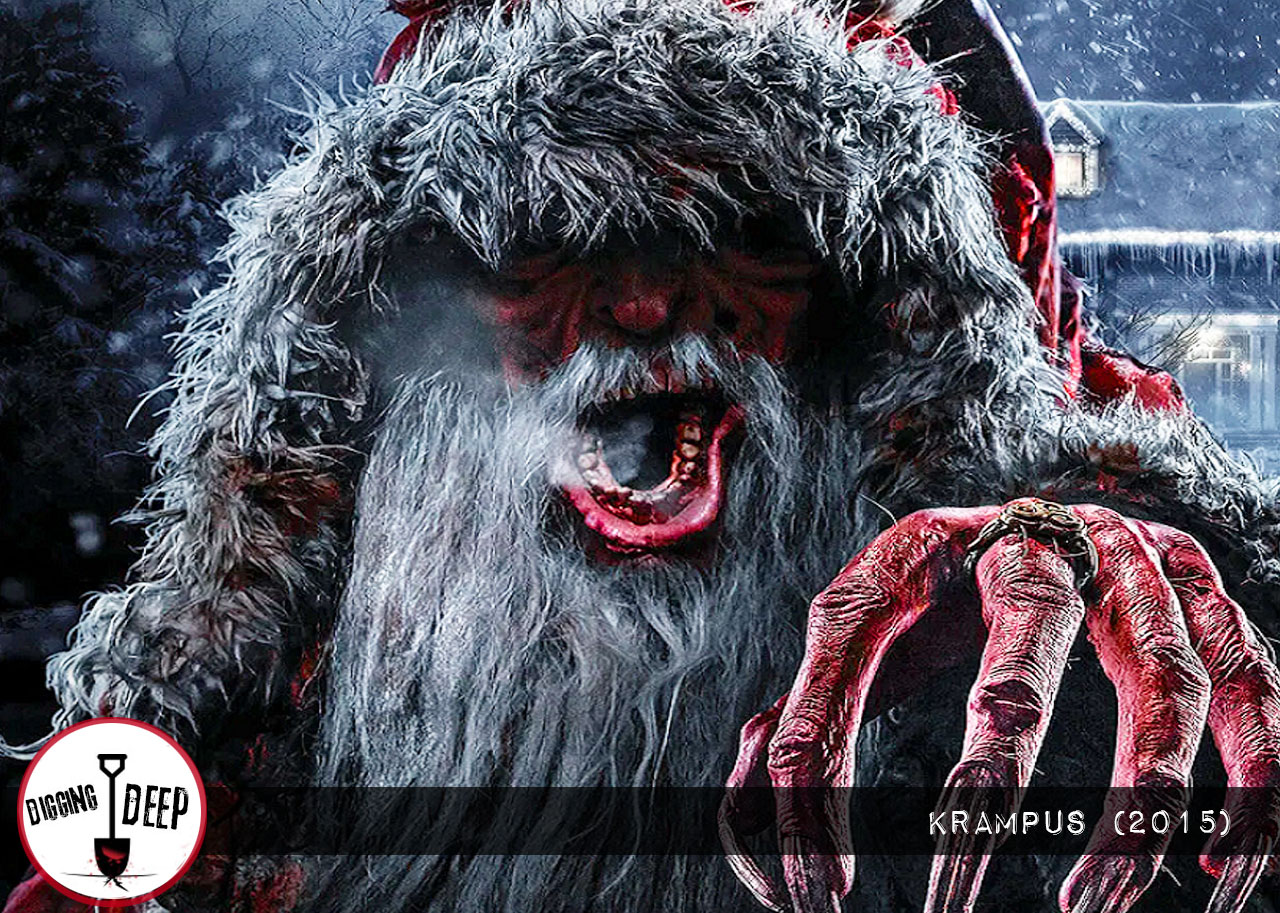“Krampus” delivers as the century’s best holiday horror fare with its bleak, pull-no-punches middle finger to saccharine seasonal cinema.

“It’s beginning to look a lot like Christmas,” Bing Crosby sings during the opening credits of Michael Dougherty’s 2015 holiday horror movie Krampus.
But the slow scroll of the Universal Pictures logo – the rotating Earthly globe appearing a little frostier than it has in the past – has already alerted the audience that the holiday film they’re about to see is far from the traditional cinematic fare that audiences generally enjoy once a year.
The introduction ensures that when audiences see Krampus, they’re seeing the holiday horror film of the 21st Century.
Seasonal classics like It’s a Wonderful Life (1946), Miracle on 34th Street (1947), National Lampoon’s Christmas Vacation (1989), and Home Alone (1990) have characteristically reminded the viewer that the holiday spirit perseveres even in the worst of times. But sometimes, audiences can be filled with the Christmas spirit through darker means.
Films like Christmas Evil (1980), Gremlins (1984), and Anna and the Apocalypse (2017) have toyed with the tenets of horror against a backdrop of holiday fun. The results have been memorable: fans of the holiday get their fair share of snow, and horror fans get a taste of fear generally reserved for October.
Like many holiday-based horror films, it’s the best of the two worlds. But Krampus has more to say than most films of its ilk.
Maybe it’s not a wonderful life after all.
Krampus – more than its predecessors – takes a decidedly different approach, refusing to simply season a horror film with candy canes and homemade cookies.

Instead, the film tells a tale framed by holiday accouterments while insisting that the seasonal spirit no longer exists.
In Krampus, there is no turning back. The audience is horrified not only by the ghouls and goblins that populate the film but also by the realization that the seasonal spirit is as seemingly dead as the movie’s cast.
Krampus tells the story of the Engel family, and all of them have been growing more and more distant from the intended Christmas joy of the season. Dad (Adam Scott) said he wouldn’t do business over the holiday – but he didn’t say he wouldn’t take calls from work. Mom (Toni Collette) tries holding it together by decorating the house to mask the deteriorating Christmas festivities.
But the Engels seem powerless against the in-laws (David Koechner, Allison Tolman, and others) who will invade their home and disrupt what could have been a holiday liberally sugar-coated with yuletide cheer.
This is no family gathering where differences will be cast aside for the good of the holiday; rather, the family will emotionally retreat from one another in a spirited concoction of alcohol, passive aggressiveness, and sarcasm. As a result, young Max (Emjay Anthony), who has held fast to the innocence of the season until now, ultimately abandons his belief in the impenetrable shield of goodness.
He understands that the wistful sentiments written in his letter to Santa Claus are foregone. He understands now that his belief in eternal virtue is dead.
Perhaps all Christmas spirit is dead.
Such is the thesis of the film.

When other films utilize the holidays as a vehicle for their own central plot, the movie still generally resolves itself with an affirming message of hope and kindness.
In due fashion, the Griswolds are reminded that family – even when it’s made up of people like Cousin Eddie – is perhaps the one thing you can count on when the world seems to be against you … during the holiday season. The Baileys learn that an entire community can come together for a single person in need … during the holiday season. Even the McAllisters learn that Micro Machines and incendiary devices are effective deterrents against home invasion … during any season.
Christmas movies have always reminded audiences of the resilience of optimism, of the power of the human spirit, and of what remains most important during any season but especially during the holidays.
But that’s not what Krampus intends.
Even the story told by Omi (Krista Stadler) of the depression that had befallen her native homeland offers no possibility of hope. As the community devolves more and more into hopelessness that Christmas season, the bestial Krampus comes for them to gift them with anguish for their spiritlessness. Omi, however, is spared the nightmarish assault of Krampus and his demonic helpers, despite her wish that all of her family and friends would disappear for their lack of seasonal joy.
“He left me as a reminder of what happens when hope is lost,” she tells the family as they further come to understand that their own lack of yuletide cheer has invited Krampus to their home as well, “when belief is forgotten, and the Christmas spirit dies.”
And – one would imagine – as Hollywood would often have it, the Engels would be spared.

Traditionally, at some pivotal moment in the film’s progress, the family would embrace the spirit that had seemingly left them, their seasonal spirit – now renewed – saving them all.
But not this time. Picked off one by one by Krampus and his minions, no member of the Engel family is spared.
From the elderly Omi to the newborn Chrissy, no family member survives. In the end, not even Max is left behind as a reminder to future generations that this is the result of the callousness that can infect the human heart.
And yet it needn’t be.
Krampus doesn’t insinuate that the holiday season spirit is dead. In fact, it assures the audience that that spirit shouldn’t be taken for granted. It should be nourished – nourished even by those holiday films that viewers have come to accept as an annual staple of the experience. But anticipating the midnight arrival of Santa Claus should never be more important than the reason for his arrival.
It’s as precious as the snow globe perched precariously on the mantelpiece. Too often – it feels, perhaps of late – we take the seasonal joy for granted. An elf on the shelf seems only to observe our goodness for a single month. Your admission of your good deeds only seems to matter when you visit the shopping mall and sit on Santa’s lap.
If only human goodness – whether attached to Santa or otherwise – lasted longer than 25 days in a year.
In this way, it’s precisely why Krampus as a holiday film remains one of the most honest depictions of the Christmas season.

It doesn’t shirk from its messaging – decorated as it is with holly and horror – that some family holidays are not meant to be saved if they’re not valued.
“I didn’t want it ruined,” Max says of the spirit that seems to have finally escaped the Engel home, dooming them all.
And it would appear that some families are not meant to be saved either.
That a movie like Krampus had the fortitude to say it – for better or worse – is the only miracle awaiting the audience at the conclusion of this singular, seasonal film.
And what a gift it is.















Follow Us!